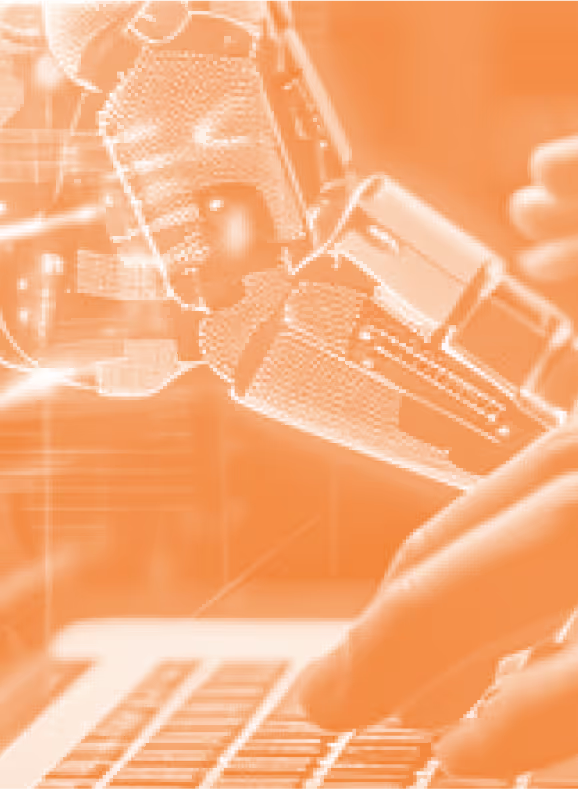Clay Automation Expert: Unlock GTM Efficiency & Growth
In today's fast-paced business landscape, efficiency is paramount. For Go-To-Market (GTM) teams – including RevOps, marketing, and sales professionals – streamlining operations is not just an advantage, it's a necessity. This is where the role of a Clay automation expert becomes indispensable. Clay, a powerful data enrichment and workflow automation platform, offers unparalleled capabilities for transforming raw data into actionable insights and automating complex business processes. Understanding how to leverage Clay effectively can significantly impact an organization's bottom line.
What is Clay and Why is it Essential for GTM Teams?
Clay is a no-code/low-code platform designed to help businesses collect, enrich, and act on data. It acts as a central hub, connecting various data sources and enabling users to build sophisticated workflows. For GTM teams, Clay is essential for several reasons:
- Data Enrichment: Clay can pull in data from countless sources, allowing teams to enrich their existing customer and prospect data. This means more complete profiles, better segmentation, and more personalized outreach.
- Workflow Automation: From lead scoring to sales outreach sequences, Clay can automate repetitive tasks, freeing up valuable time for strategic initiatives.
- Improved Targeting: With richer, more accurate data, GTM teams can create highly targeted campaigns, leading to higher conversion rates and a better return on investment.
- Reduced Manual Effort: Automating data processes significantly reduces the need for manual data entry and manipulation, minimizing errors and increasing overall productivity.
The Core Competencies of a Clay Automation Expert
Becoming a Clay automation expert requires a blend of technical understanding, strategic thinking, and a deep appreciation for business processes. Here are the key competencies:
1. Data Sourcing and Integration Mastery
A Clay expert must be adept at identifying relevant data sources and seamlessly integrating them into the platform. This involves:
- Understanding APIs and Integrations: While Clay is low-code, a foundational understanding of how APIs work and how to connect various platforms (CRMs, marketing automation tools, ad platforms) is crucial.
- Data Mapping: The ability to accurately map data fields from disparate sources to Clay's structure ensures data integrity and usability.
- Data Governance: Establishing best practices for data quality, consistency, and compliance is vital to prevent inaccuracies and maintain a reliable data foundation.
2. Advanced Workflow Design and Implementation
The true power of Clay lies in its workflow automation capabilities. An expert can design and implement complex, multi-step workflows that drive significant business impact:
- Conditional Logic: Utilizing "IF/THEN" statements and other conditional logic to create dynamic workflows that adapt to different data points.
- Data Transformation: Employing Clay's functions to clean, reformat, and transform data into the desired output for various systems.
- Error Handling: Building robust workflows that anticipate and gracefully handle errors, ensuring continuous operation and data accuracy.
- Performance Optimization: Designing workflows that run efficiently, minimizing processing time and resource consumption.
3. Strategic Problem-Solving and Business Acumen
A Clay automation expert isn't just a technician; they are a strategic partner who understands business challenges and translates them into automated solutions:
- Identifying Automation Opportunities: Proactively recognizing manual, repetitive tasks across GTM functions that can be automated with Clay.
- Defining Business Objectives: Clearly articulating the "why" behind an automation project, aligning it with broader business goals.
- Measuring Impact: Establishing key performance indicators (KPIs) to track the effectiveness of automated workflows and demonstrate ROI.
- Continuous Improvement: Regularly reviewing and refining existing workflows to optimize performance and adapt to evolving business needs.
4. Collaboration and Communication Skills
Implementing Clay solutions often requires collaboration with various stakeholders, including sales, marketing, RevOps, and IT. Effective communication is key:
- Translating Technical Concepts: Explaining complex Clay functionalities in clear, understandable language to non-technical team members.
- Gathering Requirements: Eliciting precise requirements from business users to ensure solutions meet their needs.
- Training and Support: Providing guidance and training to end-users on how to leverage automated processes and troubleshoot minor issues.
Practical Applications for a Clay Automation Expert in GTM
The applications of Clay automation within GTM teams are vast and varied. Here are some concrete examples:
Sales Enablement and Lead Management
- Automated Lead Qualification: Building workflows to automatically score and prioritize leads based on predefined criteria, ensuring sales focuses on the most promising prospects.
- Personalized Outreach Sequences: Creating dynamic email and sales cadence sequences that automatically pull in enriched data for hyper-personalized messaging.
- CRM Data Enrichment: Automatically updating and enriching CRM records with firmographic, technographic, and contact data, providing sales reps with a 360-degree view of their accounts.
Marketing Operations and Campaign Optimization
- Audience Segmentation: Developing sophisticated segmentation strategies based on enriched data for highly targeted marketing campaigns.
- Content Personalization: Automating the delivery of personalized content based on user behavior and preferences.
- Campaign Performance Reporting: Consolidating data from various marketing platforms into a unified view for comprehensive reporting and analysis.
RevOps Efficiency and Data Integrity
- Automated Data Cleansing: Regular scheduling of workflows to identify and correct data discrepancies, ensuring a clean and reliable data foundation.
- Sales Territory Optimization: Using enriched data to analyze and optimize sales territories for balanced workload and maximized revenue potential.
- Contract and Billing Automation: Streamlining parts of the contract generation and billing process by automating data flow between systems.
Tools and Resources for Aspiring Clay Automation Experts
For those looking to deepen their expertise, a wealth of resources is available:
- Clay's Official Documentation: The most comprehensive source for understanding Clay's features and functionalities.
- Online Communities and Forums: Engaging with other Clay users to share insights, solve problems, and learn best practices.
- Certification Programs: Exploring any official or unofficial certification programs that validate Clay proficiency.
- Practical Projects: The best way to learn is by doing. Tackling real-world automation challenges will solidify understanding and build expertise.
Conclusion: The Strategic Imperative of a Clay Automation Expert
In an increasingly data-driven world, the ability to effectively leverage platforms like Clay is no longer a niche skill but a strategic imperative. A Clay automation expert empowers GTM teams to move faster, make smarter decisions, and achieve unprecedented levels of efficiency and personalization. By transforming complex data processes into seamless, automated workflows, these experts play a pivotal role in driving revenue growth and operational excellence. If your organization is looking to unlock the full potential of its Go-To-Market strategies, embracing the power of automation with a platform like Clay is essential. At AutomateRevOps, we understand the critical role optimized workflows play in achieving business objectives. We specialize in empowering teams to leverage platforms like Clay and other advanced tools to build robust, scalable revenue operations. Discover how AutomateRevOps can help you streamline your GTM processes and unlock new levels of efficiency by visiting us at https://www.automaterevops.ai/.

















